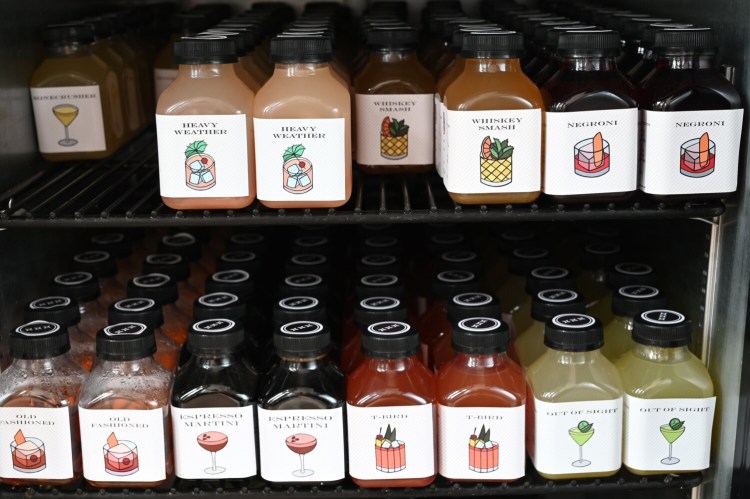An initiative that was launched early in the pandemic to help Maine bars and restaurants earn revenue while their doors were closed will remain in place for three more years, with the governor’s approval.
State lawmakers have passed a bill that allows retailers to sell to-go alcoholic beverages until March 30, 2025. The Senate passed the measure Tuesday following a House vote earlier this month. Neither vote included a roll call, which means there were no major objections. The bill still awaits a signature or veto from Gov. Janet Mills.
“Not only does this measure provide increased convenience for consumers, but it also gives restaurants a stable source of revenue as they work to recover from the pandemic,” Jay Hibbard, vice president of state government relations for the Distilled Spirits Council, said in a statement.
L.D. 1751, sponsored by Sen. Louis Luchini, D-Ellsworth, would extend an option that was first legalized through executive order by Mills in March 2020 after the pandemic forced the shutdown of all bars and restaurants for weeks or even months. It was then extended through April of this year.
Even when businesses were given the green light to reopen, customers didn’t necessarily come back in full and to-go sales became a part of the business model for many retailers. HospitalityMaine, the industry group that represents restaurants and hotels, conducted a September 2021 survey that found nearly three-quarters of respondents were still selling beer and wine to go, and 71 percent said they were selling cocktails.
“This program is working, and it has been a lifeline to small businesses in Maine,” Greg Dugal, the group’s director of government affairs, told lawmakers last month.
Luchini’s original bill would have made to-go alcohol sales permanent, something 18 other states have done, but lawmakers on the Veterans and Legal Affairs Committee last month amended the bill to give it a sunset date.
One of the concerns raised during the committee debate was whether allowing to-go alcohol sales permanently would have a negative impact on public health or contribute to abuse. Rep. Chris Caiazzo, D-Scarborough, the committee co-chair, said last month that extending sales for three more years “allows establishments to continue business as usual, but it also gives parties enough time to gather some data and put some hard numbers next to it.”
Copy the Story LinkSend questions/comments to the editors.




Success. Please wait for the page to reload. If the page does not reload within 5 seconds, please refresh the page.
Enter your email and password to access comments.
Hi, to comment on stories you must . This profile is in addition to your subscription and website login.
Already have a commenting profile? .
Invalid username/password.
Please check your email to confirm and complete your registration.
Only subscribers are eligible to post comments. Please subscribe or login first for digital access. Here’s why.
Use the form below to reset your password. When you've submitted your account email, we will send an email with a reset code.